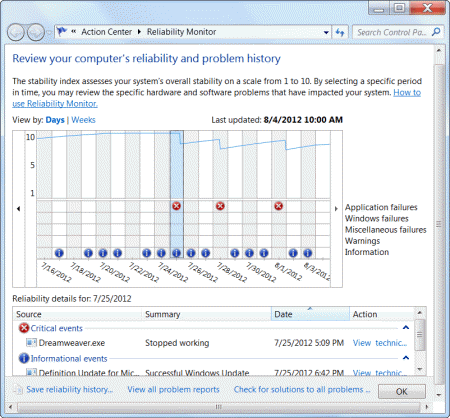In most cases, businesses tend to take their computer network for granted. We simply assume that when we get to work, we’ll be able to press the start button, log into our computer and start the day. Although we know that much of our company’s information has been stored on our computers, there seems to be an overriding negligence to ensure that these computers are properly maintained.
Most of the time, we do not think about the reliability of our computers until something goes wrong and even then, we maintain a blind trust in their ability to correct themselves. We have all tried to restart a slow computer or close an application that takes too much time to load in order to improve the speed of the computer. Nobody ever said it would work, but that’s exactly what we’re trying to do, for no other reason than to give the impression that we’ve tried everything.
There is no successful business today that takes the same approach as other parts of its business. It would be as if a company was reviewing its financial records and noting that it was out of budget for the quarter, but instead of looking for areas where it could reduce costs or improve productivity, it simply looked at financial records the next day, thinking she might have changed magic power.
The reality of the situation is that, with time, our computers can slow down and show signs of resistance. While this may be the lifecycle of a computer, there is good news for those who would rather spend their time on practical, proven methods of correcting the problem than grabbing a rabbit’s foot and making prayers.
Most often, when we encounter a problem of computer reliability involving high speed, this can be attributed to fragmentation. Signs of fragmentation on your computer’s hard drive are usually indicated by a long startup time, long application loading times, and difficulty retrieving documents. Fortunately, a fragmented hard drive does not necessarily mean the end of your computer’s life.
Your computer’s processing time is slowed down by fragmentation, which means that the way your files are stored on your hard drive will determine how quickly your computer responds to your requests. All computers store saved information in a designated “block” on its hard drive. These blocks have a limited amount of space in which files can be stored and when that block is full, your computer goes to another block to save information.
Problems appear when you retrieve a file from a block and make changes. When you re-save this file, it no longer enters the same space of the block and your computer is forced to cut the size added to the file and store it in another block. You now have a fragmented file. The next time you try to recover this file, your computer will need to search the hard drive for all the information that goes with it. This causes the delay and over time it only gets worse.
The solution to the speed problem of your computer is often in defragmentation software. Commonly called defragmentation, this software helps to counter the causes of fragmentation and restore your computer at optimal speed. Installing a defragmentation software will repair your fragmented files and create larger blocks on your hard drive to keep your files together. By cleaning your hard drive of fragmented files, the speed of your computer will improve dramatically and you will not have to worry about carrying that rabbit’s foot with you to work.
